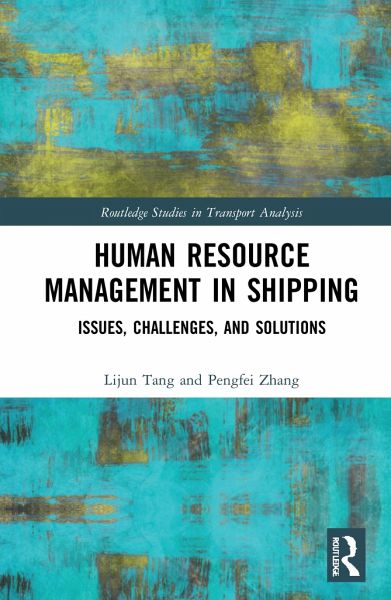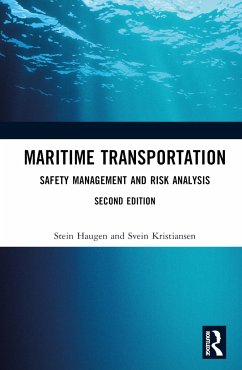
Human Resource Management in Shipping
Issues, Challenges, and Solutions
Versandkostenfrei!
Versandfertig in 1-2 Wochen
167,99 €
inkl. MwSt.
Weitere Ausgaben:

PAYBACK Punkte
84 °P sammeln!
This book sheds light on the nature and causes of the issues and challenges in human resources in shipping and proposes fresh recommendations to manage them. It explains the multiple forces at play, including the global regulatory regime, national institutional frameworks, industrial practices, trade union responses, and pressures from customers and non-governmental organisations. Human Resource Management in Shipping integrates seafarer employment data released by national maritime authorities and a large body of literature that discusses discrete human resources issues in shipping into a sin...
This book sheds light on the nature and causes of the issues and challenges in human resources in shipping and proposes fresh recommendations to manage them. It explains the multiple forces at play, including the global regulatory regime, national institutional frameworks, industrial practices, trade union responses, and pressures from customers and non-governmental organisations. Human Resource Management in Shipping integrates seafarer employment data released by national maritime authorities and a large body of literature that discusses discrete human resources issues in shipping into a single volume, providing readers with a comprehensive understanding of the issues and challenges within human resources in shipping. Beyond this, the book also offers a fresh perspective on some of the long lasting HRM challenges in the industry, such as skills shortage and seafarer recruitment and retention. This book aims to provide readers with systematic and in-depth knowledge of human resource management in shipping, and offers researchers a valuable source of reference and a solid foundation on which further development can be built.













